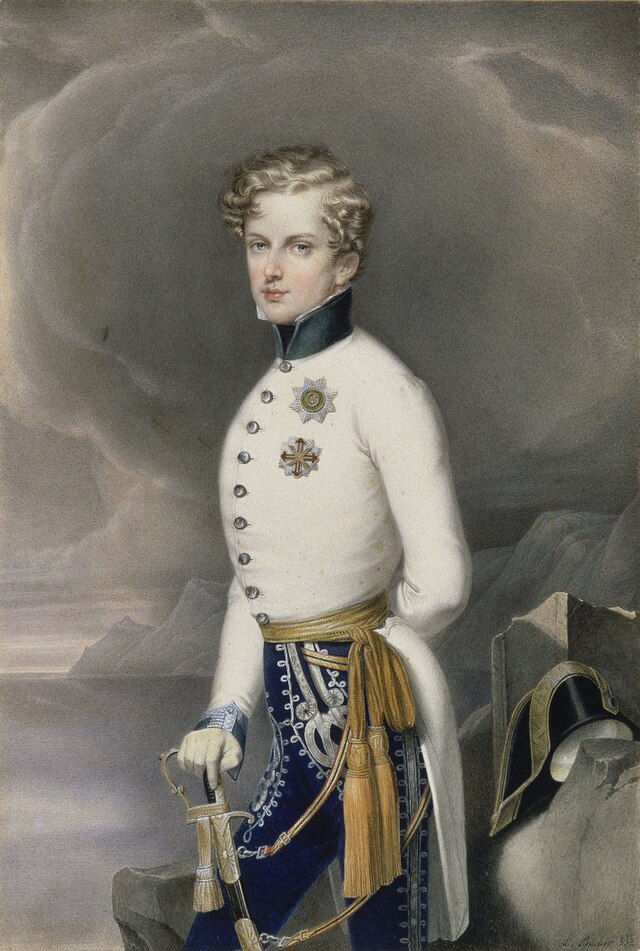The golden eagle that never flew
The short life of Napoleon II

Portrait of Napoleon II - Wikicommons
One could say that Napoleon II was as beautiful as his life was short and unfortunate. Born in 1811 from a complicated delivery to Napoleon's second wife, Marie Louise of Austria, he grew up during the decline of his father's reign, facing an already uncertain future. Appointed as the successor to the French Empire by his father after his abdication in 1815, he formally held the title for about one month (as Emperor and King of Italy and Rome) before being deposed by the anti-Napoleonic coalition. Related to the Austrian Emperor, his grandfather Francis II, he was sent with his mother to the Austrian court, one of Napoleon Bonaparte's main adversaries.
Growing up caught in the turmoil of events, the young Napoleon II—renamed Franz, in Austrian fashion—was raised in his mother and grandfather's court according to Austrian customs. In 1818, he was rewarded with the Duchy of Reichstadt by the emperor, which granted him land to govern, along with men and income. A talented soldier, intelligent, and strikingly handsome, Franz quickly drew the attention of the Austrian court. However, on the orders of Chancellor Metternich, he was kept on the sidelines of active political and military life, as there were fears he might aspire to reclaim his father's role.
By 1830, having matured, Franz began to distance himself from his mother and grandfather's influence, becoming aware that the Austrian imperial family was deliberately keeping him away from politics and military affairs to prevent him from following in his father Napoleon's footsteps. That same year, during uprisings in France, there were calls for Napoleon II to become the new ruler. Franz himself confided to a friend: "If Josephine had been my mother, my father would not have been buried at Saint Helena, and I would not be buried in Vienna. My mother is kind but weak; she was not the wife my father needed."
In 1831, he was granted command of a battalion but was never allowed to act on the battlefield. Tragically, he died of tuberculosis in 1832 at the age of just 21.
Alessandra Necci, Il prigioniero degli Asburgo: Storia di Napoleone II re di Roma, Marsilio, 2011
2025-05-07
Salvatore Ciccarello
